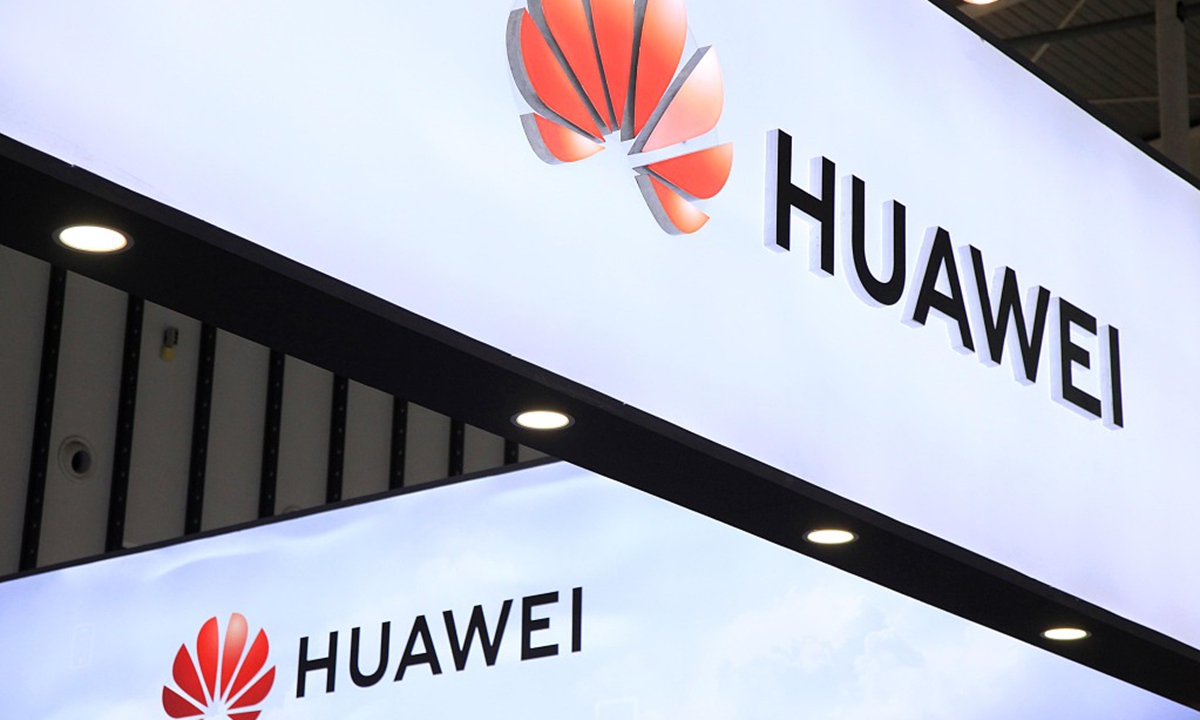Huawei may become a bargaining chip at Quad meeting following reportedly new US, Indian bans: experts

Huawei Photo: CFP
Ahead of the Quadrilateral Security Dialogue (Quad) meeting on Friday, the US and India have both reportedly hyped up their new limits on China's telecom provider Huawei. Experts interpreted their moves at such a point as "all bluff and bluster" but warned that further containment of the Chinese tech giant may be talked about during the meeting by the US and its allies.
By releasing such a signal without official announcements, the US government may adopt Huawei as a bargaining chip at the Quad meeting, Ma Jihua, a veteran telecoms industry analyst who closely follows Huawei, told the Global Times on Friday.
The Biden administration further restricted companies from selling components like semiconductors, antennas and batteries that support Huawei's 5G devices, Bloomberg reported, citing people familiar with the move. The ban will come into effect this week.
Responding to the reported ban, Chinese foreign ministry spokesperson Zhao Lijian on Friday said that "facts have proved again and again that the US is an unreliable and untrustworthy country."
Having expressed a solemn position on the matter many times, Zhao urged the US to stop unreasonable pressure on the Chinese company and suggested it do more things beneficial to bilateral exchanges in technology and trade cooperation.
Meanwhile, India is likely to ban its mobile carriers from using telecom gear by Huawei, according to Reuters.
Two of India's major telecoms carriers - Bharti Airtel and Vodafone Idea - use Huawei equipment.
Both leaders from the US and India will attend the Quad meeting, together with another two leaders from Japan and Australia.
"Drawing allies over to the US side to contain China's robust tech growth could reduce harm on the US itself, as its allies would bear and share the losses too," Ma noted, adding the US President Joe Biden is very aware of that.
Unlike the way of former US President Donald Trump, Biden's way to get allies roped in is by resourcing exchanges to reach his goals, experts said.
Under the Quad framework, Japan, India, and Australia are willing to play "pawns" for the US to counter against China, "creating an atmosphere with friendly cooperation; meanwhile sharing a bitter hatred of the enemy," Gao Lingyun, an expert at the Chinese Academy of Social Sciences in Beijing, told the Global Times on Friday.
"But the meeting will turn to be an empty talk with bravado at the end. Having neither a standing body, nor a secretariat, what the four countries under the Quad will do is to talk big at the meeting," Gao said.
Even if industry analysts from multiple countries warn that adopting telecom equipment by other companies instead of Huawei's will increase costs to both local companies and consumers, cracking down on China's 5G and other advanced technology developments has become a consensus among the US elites, Ma said.
"As a result, the Biden administration is unlikely to take a sharp turn on Huawei issues within the short term. The company will still be a key target of the Biden administration," he warned, despite the chip restrictions on Huawei having brought about a severe global chip shortage.
One of the signals on Biden's attitude toward Huawei may fall on Meng Wanzhou, Huawei CFO, according to Ma. "If the US government changes its mind to give up Meng's extradition, further relaxes on Huawei's businesses and trade bans can be expected as well."
Andy Purdy, Chief Security Officer of Huawei US division, told CNN in February that it is important for Huawei to get Meng released, and the company hopes that the Biden administration will take a different approach on the issue, compared to Trump.
Huawei has not responded to the Global Times inquiry as of press time.

